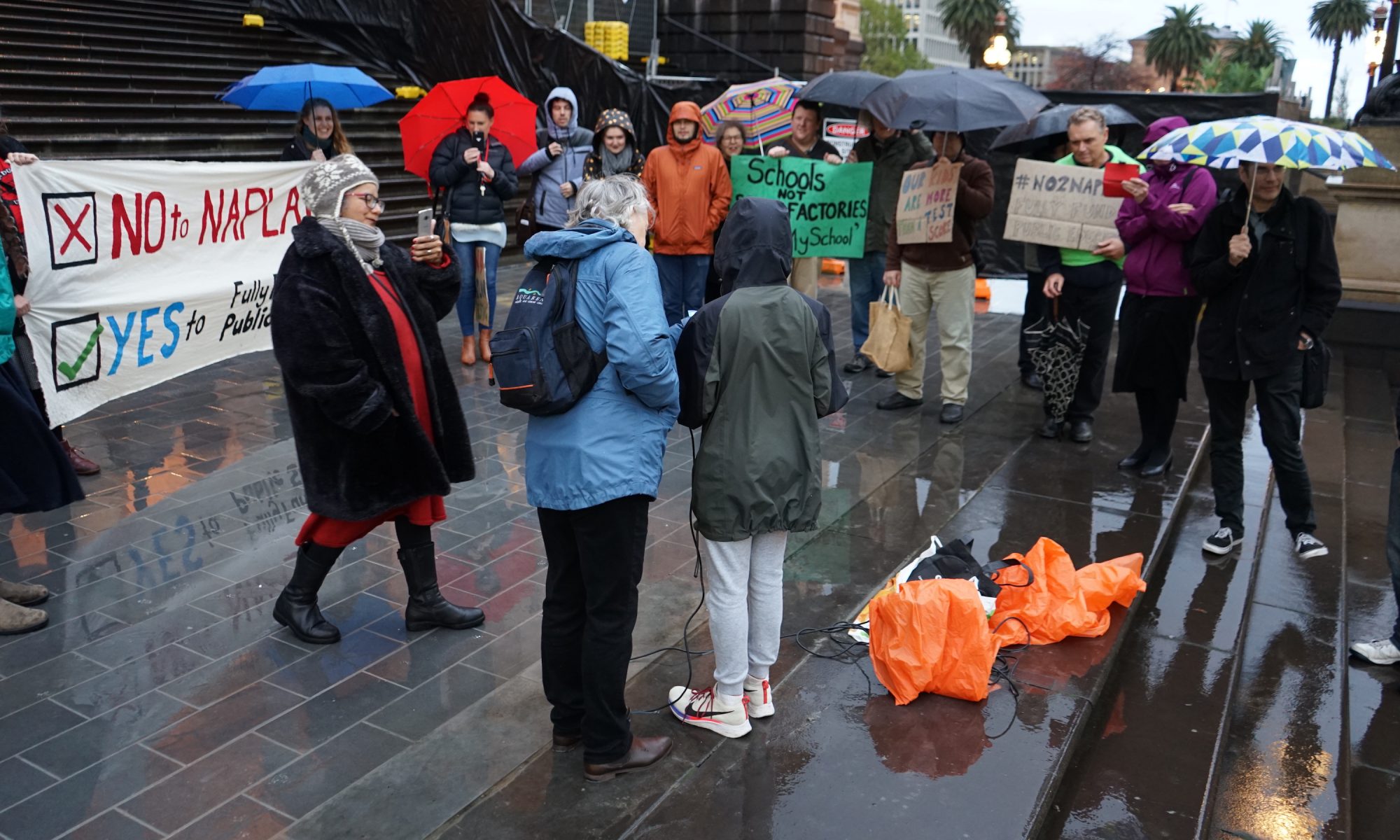14 November 2017
By Mandy Pritchard
Climate change is often communicated in terms of distant, abstract scientific projections about global temperature increases, sea level rise, and its impact on the frequency and severity of natural disasters, and on the flipside, the political, governance, individual or technological ‘solutions’ to these environmental catastrophes. Within these narratives, the emotional impact of climate change rarely gets a mention.
As a result, we are not often asked to consider the psychological toll taken on those directly in the firing line of our changing climate. Even less frequently are we given scope to examine the emotional impact of climate change on relatively privileged people concerned for the future of the planet and humanity, as we process the actual and anticipated events and phenomena unfolding around us.
So, it was a rare and welcome opportunity to be able to discuss this important issue at the MESEJ workshop Moving Beyond Despair in Climate Education facilitated by Blanche Verlie – an environmental educator at RMIT University and PhD candidate examining hope and despair in environmental education – and Fiona Taylor – a high school and undergraduate humanities teacher.
Before I go any further, a disclaimer – I am not an educator, but an undergraduate student close to graduating from RMIT’s Bachelor of Environment and Society program. My perspective about climate change education is therefore coming from a place of knowing how I like to be taught and how I best engage with learning, as well as from interaction and conversations with peers, educators, friends, family, and acquaintances about climate change and its implications for the planet and its people. I am also an ex-student of Blanche, who continues to inspire me through her ideas and actions and her unwavering commitment to engaging with topics such as those discussed in the workshop, despite this being incredibly challenging work.
My point of view is therefore not necessarily representative of others who attended the workshop, who by and large work as educators and as such have a much deeper understanding of what effective and responsible education entails, and who are furthermore bound by professional ethics and – as discussed in the workshop – prescriptive and/or restrictive curricula that overlooks and/or discourages discussion of the very real, very complex human emotions surrounding climate change.
Given this, and considering the potential audience of this blog, I will not attempt to instruct those eminently more qualified on how to address and manage the emotional impact of climate change with students in the classroom. What I can offer is my own personal perspective of the topic, as learned through my tertiary studies, my own readings, the MESEJ workshop, and my opinion that communication and the sharing of ideas and feelings around climate change and other social and environmental justice issues is key to building a more equitable and livable world.
Even in my degree program that focuses specifically on the interactions between environment and society and where climate change has some direct or indirect link to almost every subject I have studied, only one of my lecturers or tutors – Blanche – has acknowledged that firstly, climate change can stir up some complex and confronting emotions, and secondly, that providing a safe space to discuss these feelings as well as developing techniques for self-care are integral to preventing disengagement and burnout for those of us studying and/or intending to work in this area.
My own feelings about climate change – as discussed in the workshop – oscillate between sadness, anger, helplessness, despair, shame, and an overwhelming, visceral sense of loss. And despite being taught – and understanding – that the antidote to these feelings is action, after completing a climate change subject in 2016 I almost completely disengaged from thinking, talking and reading about the issue. I also made a conscious decision to pursue something less emotionally challenging after graduation – such as sustainable food systems or urban greening – as a means to protect myself from the sense of hopelessness and pain I felt about climate change and related injustices.
It has only been very recently that I have examined my values and emotions around climate change and the system that enables and perpetuates other forms of social and environmental destruction, and started to articulate my feelings and ideas both in writing and verbally in safe, supportive spaces – including in the workshop. Through this, I have come to know myself better, build emotional resilience, look at the world in which I live and participate and co-create through a different lens, and realise that climate change is an area in which – because of my intense emotional connection to, and not in spite of it – I feel compelled to work and hopefully inspire others through the sharing of stories and the building of communities of caring to contribute – collectively – to meaningful, tangible change.
Without this recent realisation, I doubt I would have attended the MESEJ workshop, which was structured in a way that encouraged participation and invited the group to identify and articulate our emotions around climate change through written or spoken word, or drawing. I’m very glad I did though, as the experience was intense but ultimately very rewarding. The results of our various activities and discussions revealed a range of feelings including anger, grief, depression, shame, disillusionment and despair – but also hope and acceptance. It was validating and reassuring to realise that other participants shared many similar emotions to my own, and also interesting that, across the board, our feelings weren’t static but rather fluctuated or had evolved over time.
Previously I had attributed my negative feelings about climate change to a combination of being overly-empathetic and to a lack of confidence that I possessed the knowledge, skills, or appropriate platform to create change. The logical response to that – in my mind – was to disengage. Now, thanks to some deep introspection and sharing of my feelings through university coursework and the workshop, I understand that mine is a reasonable and common response to climate change. Feeling sad or fearful or angry about environmental and social injustices doesn’t equate to emotional instability – it’s a natural human response to very overwhelming stimuli – and I’m not alone in feeling this way. The key, I believe, is what we individually and collectively do with these emotions, and how we communicate them to others in a way that builds solidarity and resilience, rather than inadvertently precipitating disengagement.
I think most of us in attendance at the workshop agreed that learning to manage our emotional responses to climate change is a prerequisite to instructing others how to do so, and Blanche recommended Ashlee Cunsolo Willox’s Climate Change as the Work of Mourning as a follow-up reading, which I have personally found very helpful in reframing my own feelings of grief and loss as opportunities to share and connect with others.
The take-home message from the workshop, for me, was that we have a responsibility – as educated, relatively privileged global citizens concerned with the impacts of climate change, and more formally as educators – to not only share our knowledge, thoughts, and feelings about climate change, but to create safe spaces for young people to do the same. As well, with the current lack of political leadership, misinformation in the media about climate change, and the disappearance of community, I think that developing emotional resilience through such discussions in the classroom is essential if we want future generations to engage with politics and the world outside of school, friendship groups and family, and to fight for social and environmental justice in an increasingly inequitable world.
I realise that my ideas may not be mainstream, but I wonder – if we don’t provide young people with the tools not only to connect with these issues, but to communicate their values and feelings effectively, who will? Also, how do we teach them to act with compassion, respect and intention if we don’t demonstrate – with our own words and actions – that the emotions underlying our desire to create a better world are normal, worthy of examination and – crucially – should be shared? How do we create a future generation of empathetic, engaged, socially-conscious critical thinkers and effective change-makers if we don’t provide safe and supportive spaces for them to test the waters?
My thoughts, after the workshop, are that we won’t do this by wrapping them in cotton wool and shielding them from the harsh realities of the world. We won’t do this by pretending that climate change will be solved by simply communicating the science or developing technological fixes to slow global warming. And, we certainly can’t hold the next generation in contempt when we are the ones with the capacity – right now – to create change and model effective ways of thinking and doing. If we’re doing a shit job, we can’t expect those we’re teaching to do any better.
This is not easy work, but it’s essential to the future of the planet and humanity. The question we have to ask ourselves is not only what our responsibility as global citizens is to the people who will be directly and disproportionately impacted by climate change – but also who we want to be to each other, and how we can support one another on this trajectory into the unknown.
The importance of this was affirmed through feedback at the end of the workshop, which indicated that we all appreciated the opportunity to share our emotions, ideas and concerns about climate change with like-minded others, and that talking about our grief, sadness, anger, etc., validated our collective desire to create a more sustainable and just world in spite of the challenges this work presents. The workshop also reconfirmed to me the value and necessity of providing safe spaces – whether in the classroom or platforms such as MESEJ – to share our values, ideas, fears and dreams, to enhance communication, build relationships, reconnect community, and re-position hope as key to our common future.

